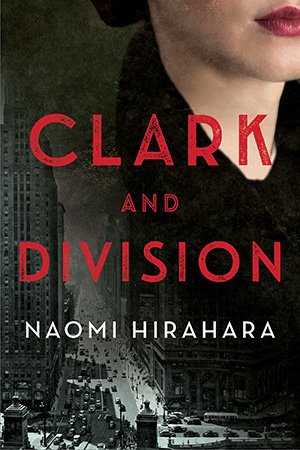Our faculty Q&A series begins with chatting to Naomi Hirahara, the Edgar Award-winning author of multiple traditional mystery series and noir short stories who will be teaching our first ever Mystery Workshop at MCWC 2022.
Naomi’s Mas Arai mysteries feature a Los Angeles gardener and Hiroshima survivor who solves crimes and have been published in Japanese, Korean and French. The seventh and final Mas Arai mystery is Hiroshima Boy, which was nominated for an Edgar Award for Best Paperback Original. Her first historical mystery is Clark and Division, which follows a Japanese American family’s move to Chicago in 1944 after being released from a California wartime detention center. Her second Leilani Santiago Hawai‘i mystery, An Eternal Lei, is scheduled to be released in 2022. A former journalist with The Rafu Shimpo newspaper, Naomi has also written numerous non-fiction history books and curated exhibitions.
What are the tools/tips/techniques you use to make your historical fiction as authentic—or grounded in the ‘real’—as possible?
Historical fiction and mysteries both require the writer to select the best and most effective concrete details. You don't want to carpet your novel with too many time period specifics, especially those which are overused. Invaluable is that one piece of research that can clearly transport the reader to a different world.
The mystery genre has captivated readers from the 19th Century to the present day. Why are we so hooked on whodunits, and what are the key ingredients to crafting a compelling one?
When a dead body enters a story, we understand that we need to pay attention and that we can no longer be in denial about the unpleasantness in our lives. The truth teller, our sleuth, strips away deception. In what ways are the abilities of our protagonist compromised or weak? What needs to be learned? The selection of clues and the crime should reflect the theme of the story.
What are your writing’s biggest influences or inspirations?
I've probably been influenced the most from my years spent as a journalist for a small ethnic newspaper in downtown Los Angeles, next to Skid Row. That experience was life changing. The gathering of stories was active, requiring me to travel to places I've never been before. As a result, I'm drawn to movement in the stories I write.
Do you ever get writer’s block? If so, how do you overcome this?
I never had problems sitting down and writing -- until the pandemic. Doing sprints with a friend over Twitter DMs saved me. I even got serious about Nanowrimo; I didn't pressure myself to make the total word count of 50,000 words in one month, but the program certainly helped me dive into and begin my new novel after engaging in some heavy-duty research.
What are you hoping participants of your MCWC workshop will get out of the time they spend with you?
Why are they writing a mystery in the first place? The genre must serve a purpose. If they gain insight of what that can be, character development and plot will fall into place.
Find out more:

